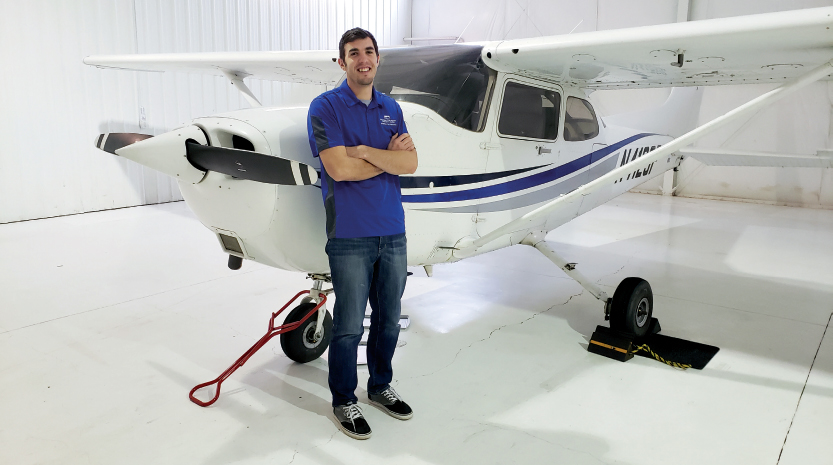Aviation program continues to grow with the help of alumni instructors
In October 2018, Joshua Barnes became the first FAA certified flight instructor to graduate from Western Colorado Community College’s Aviation program. Soon after, he started teaching on the very same tarmac he learned on.
“It’s really cool watching someone go from zero to flying an airplane all by themselves and knowing you helped them get there,” said Barnes.
In two years, students earn four pilot licenses: private, instrument, commercial and certified flight instructor. They graduate with around 250 flight hours.
The Aviation Technology program at WCCC has taken off — reaching capacity of 30 enrolled students with nearly a dozen on the waitlist. The good news is as the program’s facilities grow, so does the number of students they can enroll.
“The program is on its way to becoming a top flight school,” said Barnes. “Our area is perfect for training.”
In the first semester, students fly to Moab and Green River, and once they start their commercial training, 53 flight hours are solo cross-country flights.
Students fly to Rangely, Meeker and go as far south as New Mexico.
“To fly above the San Juan National Forest and over the La Sal mountains is pretty special,” said Barnes.
Eventually Barnes wants to be a pilot for medical transport and to do that he needs about 2,000 flight hours and helicopter experience. He plans on continuing his aircraft training but until then he’s helping build the thriving program that got him started.
In one semester, WCCC went from having three airplanes to five. The planes aren't the only new equipment the program has added.
“We now have two FAA approved Redbird TD2 flight simulators that are an integral part of our aviation program,” said former Interim Aviation Technology Director Dan Ashton. “They give us the capability to practice scenario-based flight training lessons, simulated equipment failure and emergency procedures not normally done in the aircraft.”
Four instructors have joined Barnes, two of whom followed in his footsteps as program graduates. Also new to the team is FAA Designated Chief Pilot Earling Brabaek and, following the retirement of Ashton, David Perry, who is the new program director. Perry comes from Embry-Riddle Aeronautical University.
“It’s the Harvard of the flying world,” said Ashton. “Everyone who flies knows of Embry-Riddle.”
From more equipment to a larger team — the program’s potential is sky high. •
